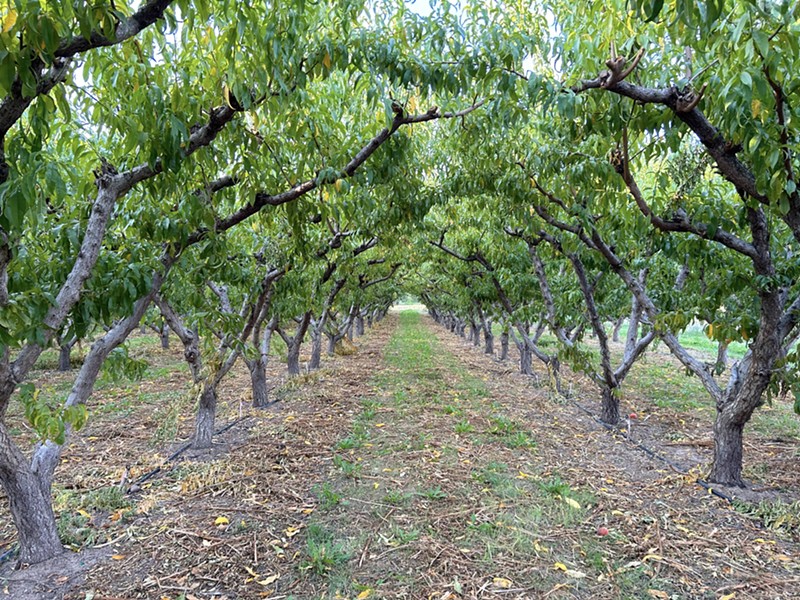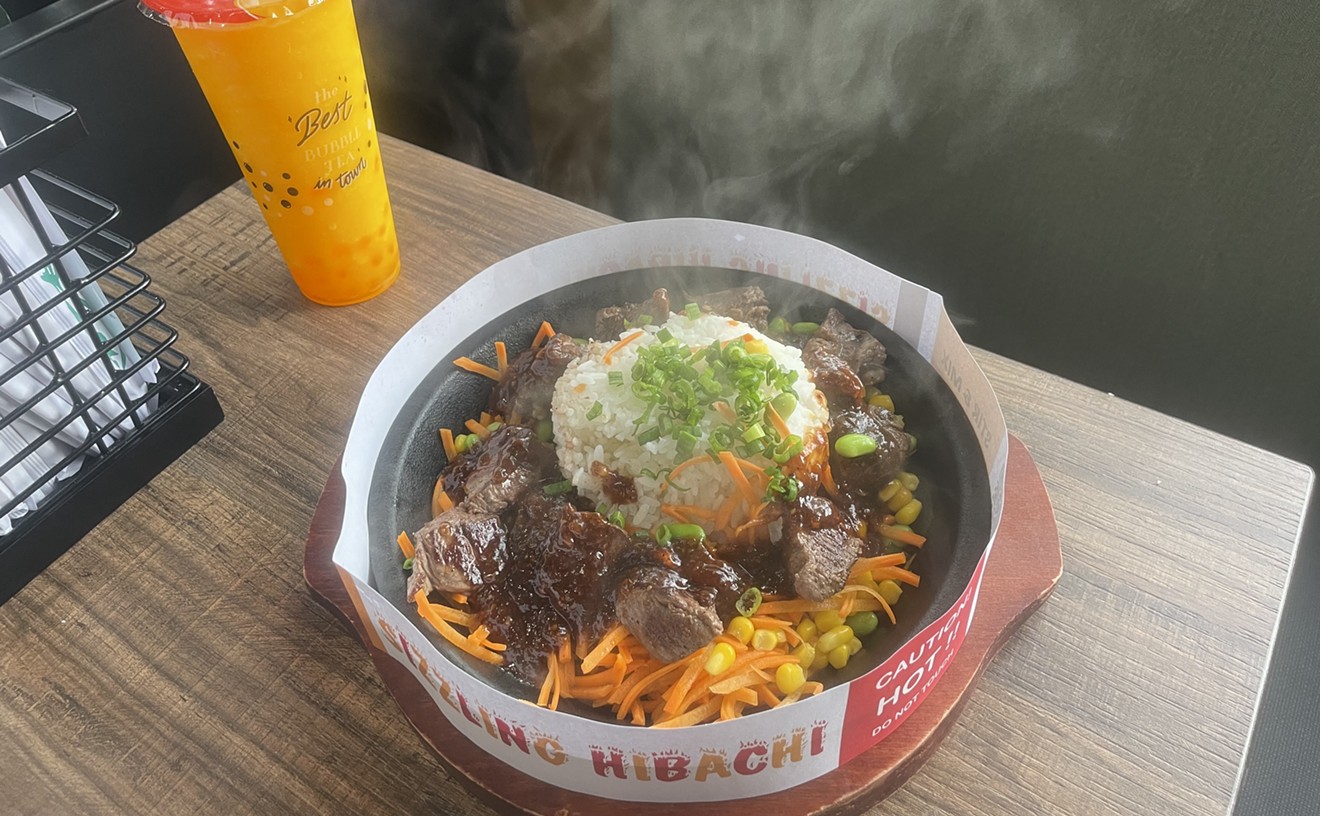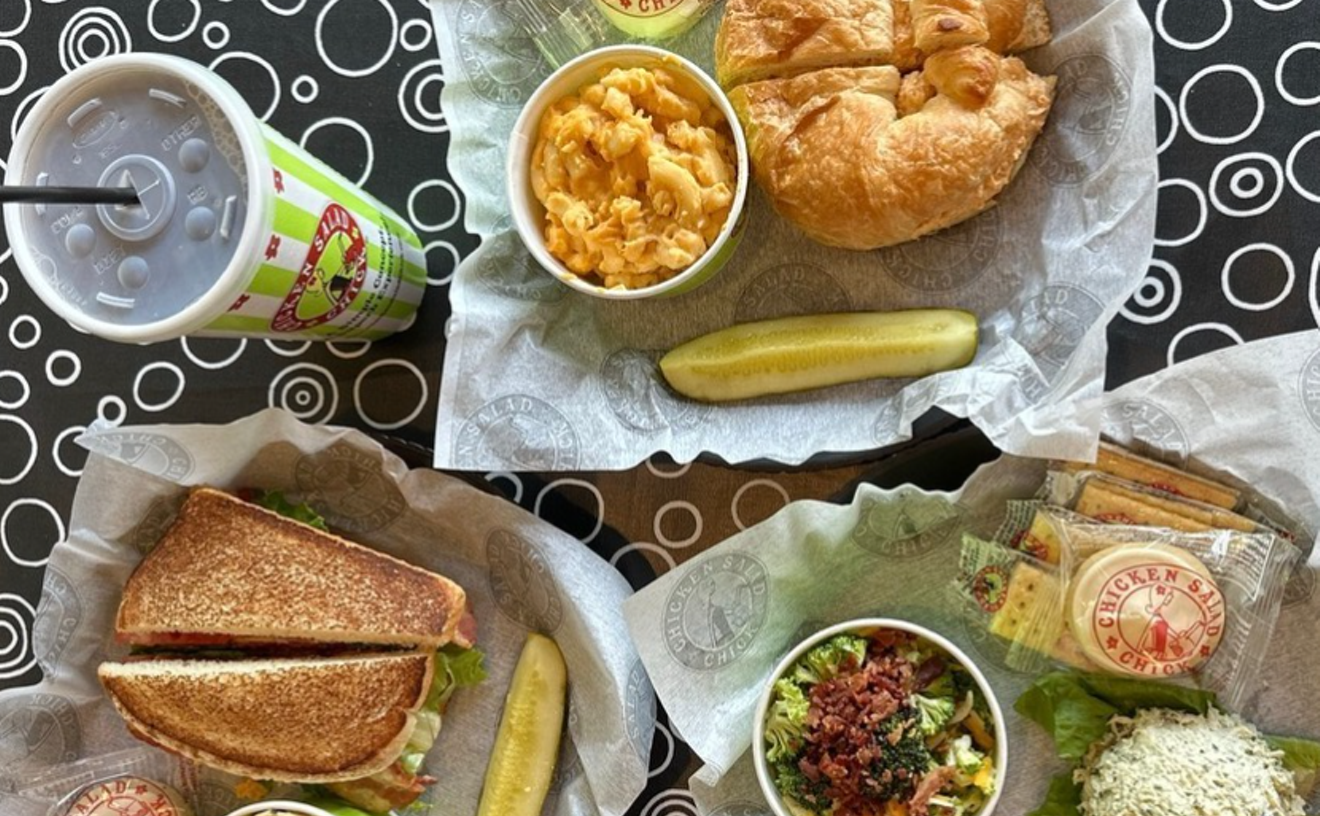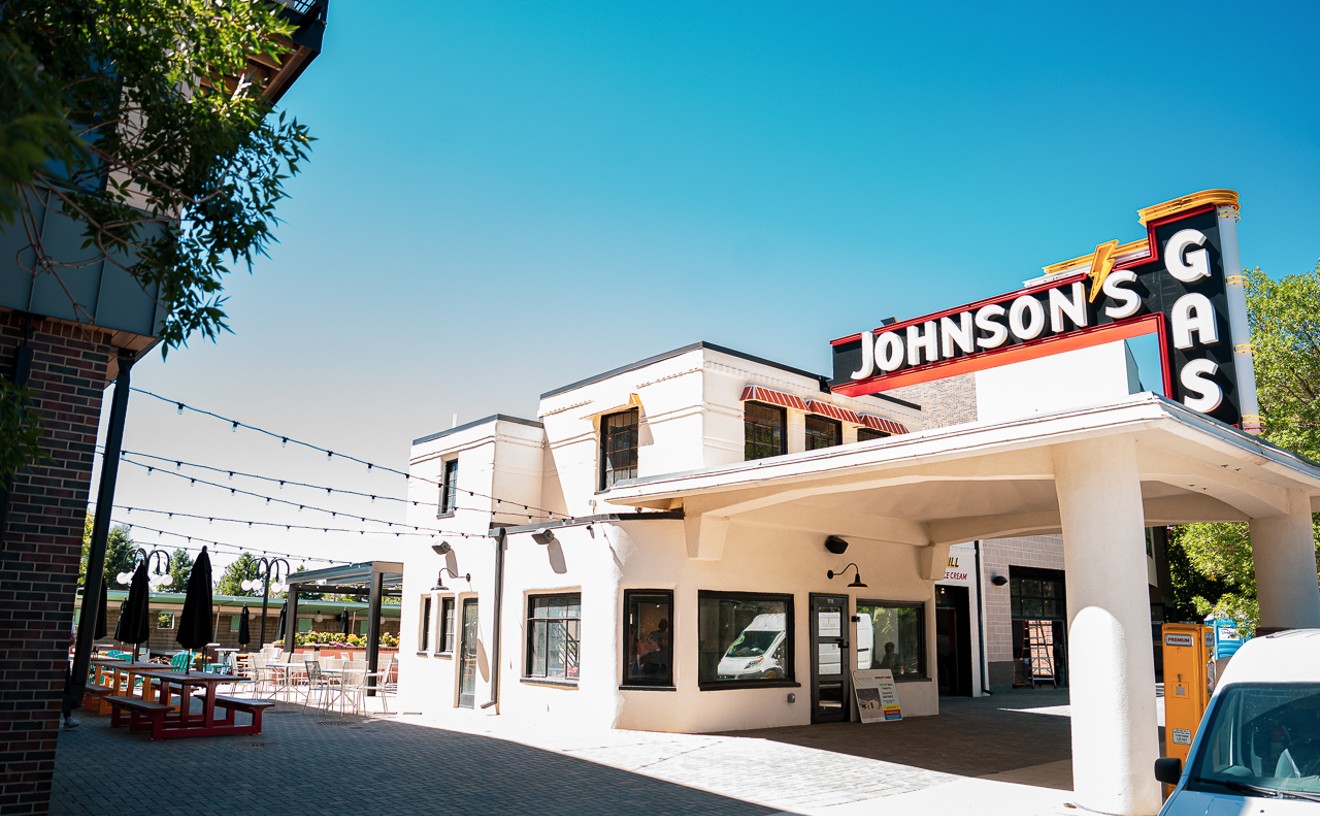“That’s absolutely not true," scoffs Bruce Talbott. His great-great-grandfather Joseph Evan Yeager was one of those Iowa transplants, drawn to the Western Slope like a bee to honey — or, more appropriately, peaches. He planted one of Palisade’s first orchards in 1907; today, family-owned and operated Talbott Farms is the largest peach producer and largest wine grape producer in the state.
Each season, it grows around 350 acres of peaches, 160 acres of grapes and about forty acres of miscellaneous produce including plums, cherries, apricots and hybrids like peacotums and pluots. But its bounty, both in terms of harvests and revenue, hasn’t always come easy.
“We were 90 percent apples, 5 percent pears, 5 percent peaches," Bruce says of the harvest in 1985, when he and his brothers took over ownership of the farm from their grandfather. But major problems soon rotted much of the local apple industry.
“It was painful,” recalls Bruce. “Our last crop of apples, Red and Golden Delicious, was in 1999, and it was worth $20 a ton. We were going to go bankrupt very quickly if we kept doing what we were doing.”
So the fifth-generation owners pivoted to peaches.
Peaches now at the core of the business
From July to September, the farm now yields between six to eight million pounds of peaches. Within three days of picking, they’re brought into its production facility, where a mechanical arm seizes a large bin and submerges the fruit in water to begin the cleaning process. They then float down a lazy river-like chute that leads to a series of brushes.“The first series is brushing off debris, so it'll take off leaves and dirt. The second is getting a little deeper into that dirt. The very last set of brushes de-fuzzes the peach,” says Charles Talbott, son of Bruce and director of operations.
From there, a team of six people begins sorting the peaches. Anything that’s especially ripe gets tossed down a chute to a green machine that processes the fruit. Some goes to Colorado-based dairy company Noosa, which sells tubs of sweet peach yogurt; the extra-ripe peaches are also made into puree found in several local peach beers, including Breckenridge Brewery’s iconic Palisade Peach Wheat Ale and Bruz Beers’ award-winning Oak Marionette on Peaches sour.
After this initial round of sorting, the peaches go through a machine that snaps 150 pictures to detect any blemishes. Anything with marred aesthetics pops out on one line and will be shipped out as No. 2 peaches per grade standards set by the U.S. Department of Agriculture.
Those the machine determines are blemish-free and good to size are deemed No. 1 peaches and go through a separate line. Scale trays move the fruit down the line and drop them into sections based on weight. Sixteen-pound boxes are then packed, stamped, stacked on pallets, wrapped, moved into a cooler and then onto a delivery truck.
Because smaller Colorado orchards largely ship in-state, Talbott Farms targets the less-saturated Midwest market. Hy-Vee, a grocery store chain with more than 240 retail locations, is its biggest customer. It also sells peaches, among other items, to Sprouts and Kroger.
Sure, out-of-state grocers could carry peaches grown in Georgia, South Carolina or the country’s largest peach producer, California. But Charles explains that Palisade peaches are special.
“Colorado is one of the smallest producers, but we're the highest-priced peach in the United States because we pick a lot closer to ripe," he says. "In California, they'll pick it green because then they have a longer season for its stability, whereas we tree-ripen everything. We hit it right before it goes soft, package it and it's in the grocery store within 36 hours.
“The thing that makes our fruit different is, in Colorado, we have 350 days of sunshine and a high diurnal shift," he adds. During the daytime, when temperatures are really high, the peaches build up sugars; come night, when Palisade often experiences a 20- to 40-degree drop, the peaches lock in acid. “Even with our wine grapes, it gives us a much different terroir than everywhere else,” comments Charles.
How wine came into the picture
Around the time that the region’s apple industry largely died out, Plum Creek Cellars, which has since sold to Palisade-based Colterris Winery, approached Talbott Farms with an offer. If Bruce agreed to grow wine grapes, Plum Creek would send over a viticulturist, commit to a set volume and pay a fair price. Since peaches are a summer crop and grapes are harvested between September and October, the deal made sense.Today, some grapes are sold to Talbott Farms’ thirty winery clients. Other partners purchase ready-made juice, which is produced on-site. After harvesting, grapes are forklifted into a large machine that removes their stems. Then, they’re pumped into a press that places continuous pressure on the fruit during a two-hour cycle. This process results in juice batches as large as 600 gallons, which are shipped to wineries that include Carboy Winery and Bugling Elk.
Some juice batches are kept for Centennial Cellars, a wine brand that Charles and his brother, Joe Talbott, co-own. Its white varieties are fermented for six to twelve weeks, while reds can take anywhere from six months to two years. “This year will be the first that we're releasing all of our reds," Charles notes.
Those coming soon include a cabernet sauvignon and two styles of merlot, while several rosé bottles and both a semi-sweet and dry riesling were recently corked. The company also cans some of its wines, from a chardonnay blend to peach-infused spritzes.
Charles and Joe have plans to continue growing the business and are currently in the final stages of obtaining a vintner's restaurant license. In the next three years, they hope to open a farm-to-table eatery at Talbott Farms with a Southwest-inspired menu. Additionally, they'll will soon launch a wine club and begin wholesale distribution.
“But for now, we're gonna keep it kind of niche,” says Charles, admitting that while Centennial Cellars allows for creativity, it’s the cidery that pays the bills.
The apple orchard is gone, but the mill stays running
“Typically, the third generation is the generation to lose the [family] farm because the first generation builds it, the second is scared to lose it and the third just doesn't have any desire,” says Charles. He believes that part of what makes the sixth generation, successful is that the brothers established autonomous companies: Centennial Cellars and Talbott’s Cider Co.Bruce built the farm’s cider mill back in the ‘80s; within this facility, the apples still grown at Talbott Farms go through a process similar to that of the peaches. The harvest is placed in a dunk tank, climbs up an elevator and goes through a series of brushes, which remove leaves and debris. But then, the apples are crushed and enter a chain of rollers that compress and pulse the fruit further. As part of Talbott Farms's zero-waste commitment, all the hard pomace is separated and shipped to livestock operations or used as compost, while the juice is collected for additional processing.
First, it’s flash pasteurized or brought to 180 degrees for six seconds. Then, the juice goes through a crash chiller, is collected in two tanks and pumped into a packaging line that allows bottles to be filled, capped and labeled. Some are shipped out as private label products — if you’ve recently bought a gallon of apple cider from an in-state King Soopers, it was pressed by Talbott Farms. Other apple juice and apple cider bottles are branded as Talbott’s Cider Co.
Talbott’s Cider Co. also produces twelve different hard ciders in cans, including its flagship Alpine Start, peach-infused Summer Sunset and seasonal pumpkin-spiced Basic AF, all of which are available at metro Denver retailers including Bevy’s, Argonaut, Applejack and Molly's Spirits. Around eight additional small batches are exclusively served on tap, like the Imperial Prick hard cider infused with prickly pear.
In the early days of the company, on-premise sales made up 70 percent of the cidery's business. “We killed it when it came to all of the fun places to eat and drink in Denver,” says Charles. But COVID changed that.
“Now, our on-premise is about 10 percent of what we do overall, which is just insane. But the volume for us didn't change. It just changed from kegs to cans,” he comments.
The number of moving parts at Talbott Farms can seem overwhelming, especially for a crew of around just 25 year-round staff members and a hundred seasonal workers, many of whom are part of the H-2A program. Eventually, the fields and mill will go dormant as the snow falls — but for now, the Talbotts and their team work from dawn to dusk, carrying on traditions and creating new ones.












